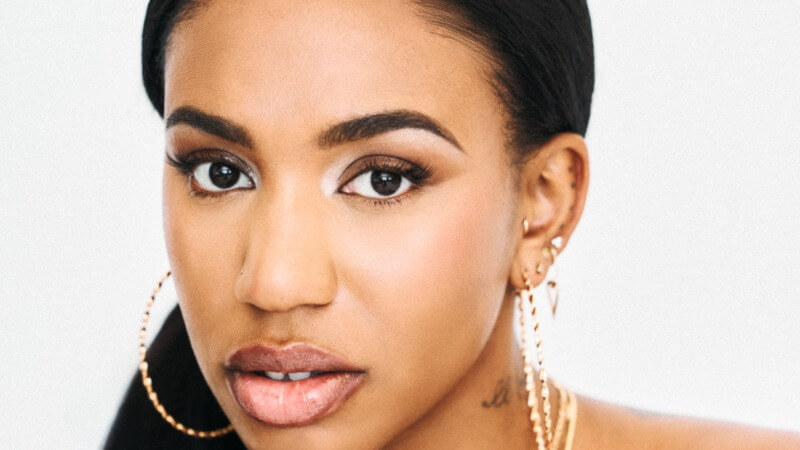Yaya Bey Walks Through Portals on do it afraid
On her sixth album, the Queens native moves through tangled emotions and shifting selves, finding power in vulnerability.

Yaya Bey was three months behind on rent when she dropped 2022’s Remember Your North Star, a confessional R&B-jazz-reggae epic rooted in her experiences of misogynoir and survival. The record earned her critical acclaim and a foothold in the left-of-center neo-soul landscape, ushering her into a level of success she’d been working since 2016 to reach. But just as her career was hitting a new peak, her personal life collapsed. Bey’s father, Ayub (rapper and Juice Crew member Grand Daddy I.U.), died at the end of 2022, and she was suddenly faced with a loss she wasn’t sure she’d ever come back from. She spent the year that followed working through her grief, reforming her personal life (she got married, finally in the kind of loving, unconditional relationship she’d dreamed of on earlier records) while simultaneously preparing her next LP. 2024’s Ten Fold was released during a period of grief but built on affirmative and radically transformative dance cuts.
After the success of Remember Your North Star and Ten Fold, Bey found herself pigeon-holed into a familiar narrative: the voice of Black struggle. But do it afraid is Bey’s rejection of that containment, her declaration that Black life is also full of joy, sensuality, absurdity, vibrancy, and ease. It’s a celebration of everything in her community that fills her cup. (You can see it clearly in the “raisins” video: family, barbershops, food, community, textures of Black life that don’t need a qualifier.) do it afraid battles the absurdity of contemporary life—housing insecurity and stagnant wages, the quiet violence of systems designed to wear you down—while also zooming in on the hyper-personal and finding room to celebrate inexhaustible joy. These are themes Yaya Bey has touched on before (see Ten Fold’s “eric adams in the club,” and RYNS’s “nobody knows”), but here, she approaches them with even more levity.
And the actual music mirrors this emotional whiplash. The record zig-zags between genre and feeling in a way that reflects the disorienting simultaneity of the human condition. Bey flaunts her seamless blend of R&B, rap, soul, and funk while folding in motifs from dancehall and soca. She produced 11 of the album’s 18 tracks, with contributions from the likes of BADBADNOTGOOD (“blicky”), Exaktly (“in a circle,” “aye noche”), and Nigel Hall (“end of the world,” “ask the questions”), among others. From being the life of the party to curling inward, then crawling your way back out again, do it afraid speaks to the saying that healing isn’t linear. It’s a consistent cycle through defeat and triumph, and the things you turn to on the journey between the two (whether it be weed, your family, dancing with your best friends, or an unconditional love).
-

-

-

-

-

-

-

-

-

-

-

-

-

-

-

-

-

-

-

-

-

-

-

-

-

-

-

-

-

-

-

-

-

-

-

-

-

-

-

-








































